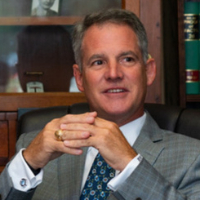Nobleton Criminal Lawyer, Florida
Sponsored Law Firm
-
 x
x

Click For More Info:
-
Law Office of Mark S. Guralnick
55 Madison Avenue 4th Floor Morristown, NJ 07960» view mapCriminal Defense Law Dedicated. Fearless. Successful.
Mark S. Guralnick and his legal team have helped clients throughout the USA and across the world by applying unparalleled dedication and hard work to each case.
800-399-8371
Robert Allen Morris
✓ VERIFIEDCriminal, Felony, Misdemeanor, DUI-DWI, Divorce & Family Law
Robert A. Morris, Jr. has been practicing law in Hernando County since 1991 when he started his career as an Assistant State Attorney for the Fifth Ju... (more)
Harlan Derek Saltsman
Real Estate, Lawsuit & Dispute, Employment, Criminal
Status: In Good Standing Licensed: 24 Years
Cheryl Lynn Powers
Criminal, Personal Injury, Accident & Injury
Status: In Good Standing Licensed: 23 Years
Joshua Houston
Federal Appellate Practice, Government, Criminal
Status: In Good Standing Licensed: 17 Years
John R Vitola
Traffic, International Trade, Criminal, Consumer Protection, Personal Injury
Status: In Good Standing Licensed: 41 Years
Julian Earl Harrison
Government, Divorce & Family Law, Criminal
Status: In Good Standing Licensed: 52 Years
Felix M Adams
Commercial Real Estate, Federal Trial Practice, Estate Planning, Criminal
Status: In Good Standing Licensed: 42 Years
Daniel James Geraghty
Federal Trial Practice, Government, Criminal
Status: In Good Standing Licensed: 9 Years
 Mark Guralnick Morristown, NJ
Mark Guralnick Morristown, NJ AboutLaw Office of Mark S. Guralnick
AboutLaw Office of Mark S. Guralnick Practice AreasExpertise
Practice AreasExpertise


